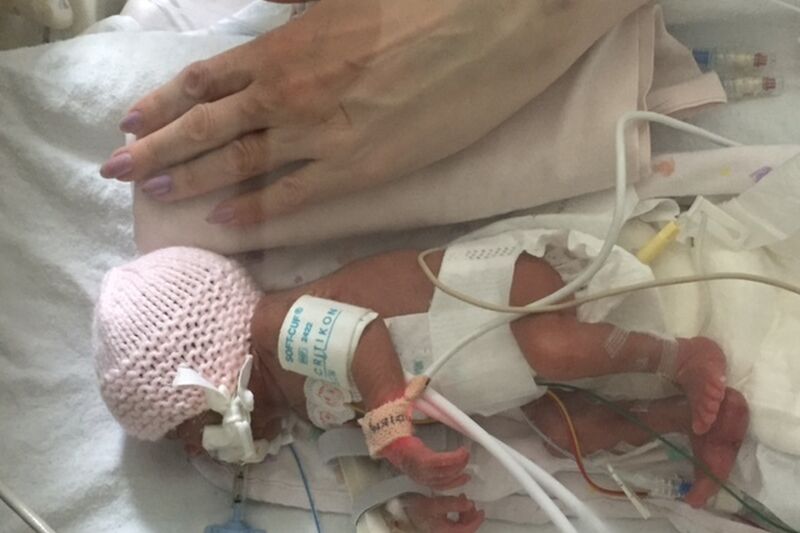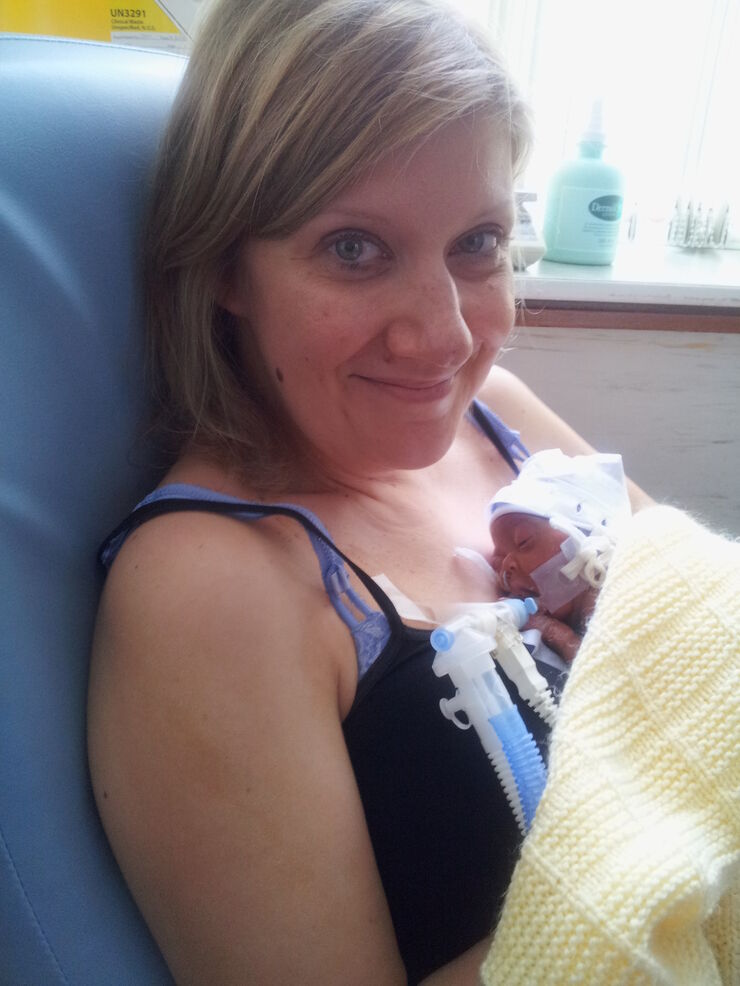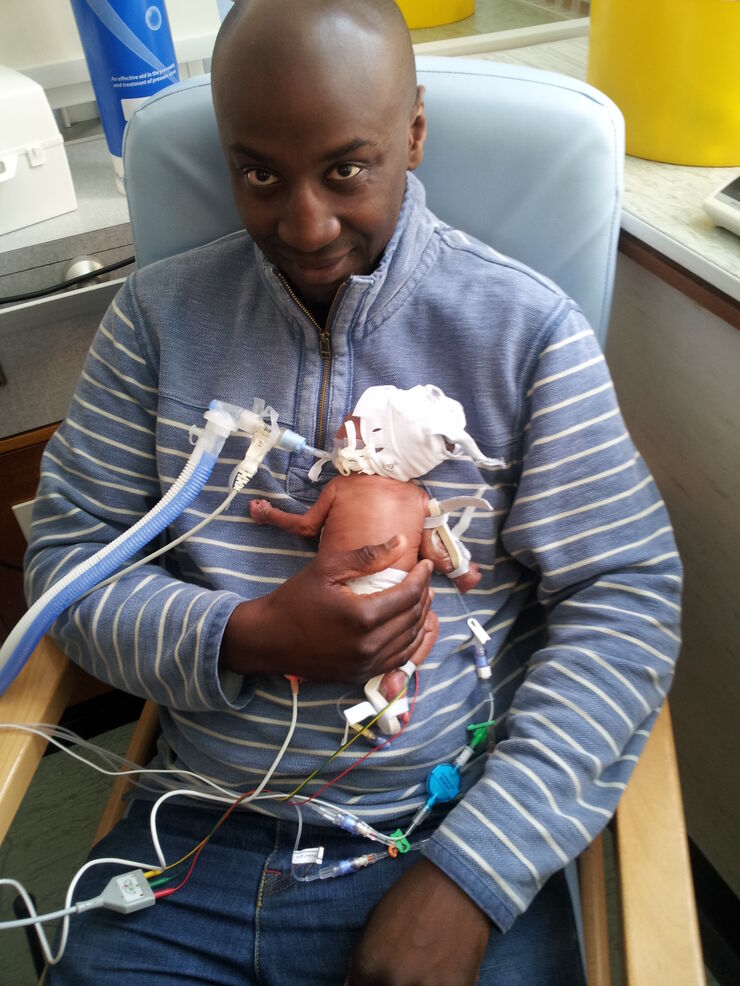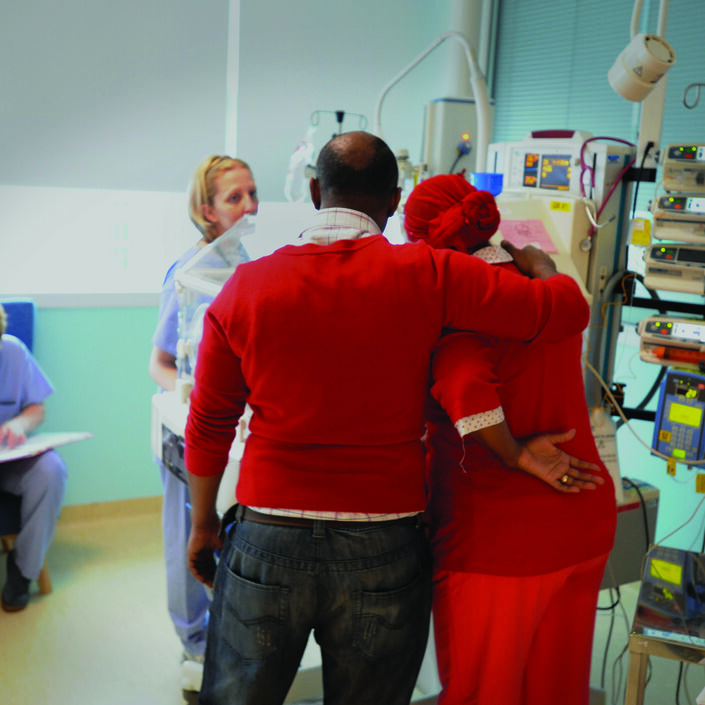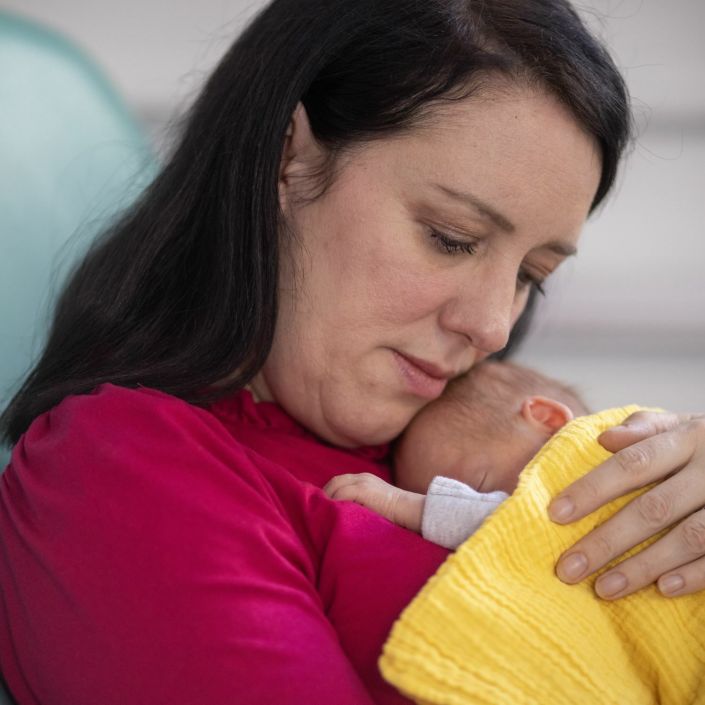I began having contractions and bleeding at 23+4 weeks so I rang the hospital and was told to go straight to the labour suite. That in itself was an enormous shock. Why would I be going there so soon?
At the hospital, a neonatal nurse came to speak with us, and showed us some Bliss leaflets. She explained what happens when a baby is born early, and said that doctors are not always able to save your child.
Things calmed down for a couple of days and I was moved to a side room on the antenatal ward. The morning after being transferred I went into the bathroom thinking I was passing a blood clot. What I saw instead was Amaya’s head.
Calmly, I stood up and caught her; all 1lb 6oz of her. She was moving like a bird and I didn’t know how to hold her. Somehow I managed to open the bathroom door and hit the emergency button. At the time my husband was at home getting our eldest daughter, Tahlia, ready for school. None of us knew how our lives were about to change forever.
The doctors said Amaya was breathing on her own and they would do all they could. They took her up to the neonatal unit. I was rushed into theatre with a stubborn placenta, which had partly ruptured. I thought we were both going to die.
During recovery my husband arrived, and we were greeted by the neonatal family sister, who was wonderful and gave us a lot of information. She also had a photo of Amaya for us. I look at that photo every day and realise how blessed we are, even though we have all been through so much.
